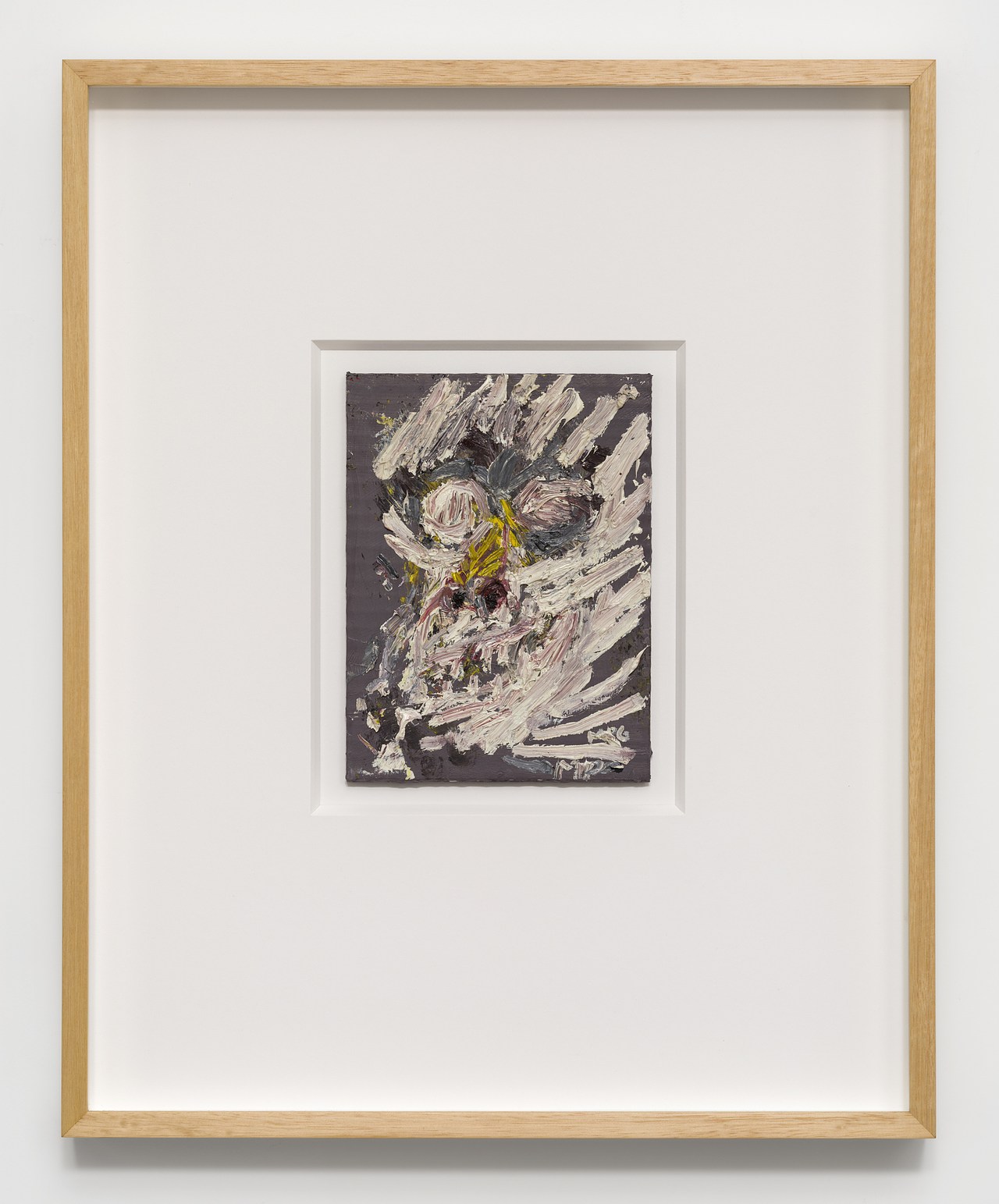Human Quarry
- Painting (Painting)
55 x 42 inches
Leslie Shows
Human Quarry is a large work on paper by Leslie Shows made of a combination of acrylic paint and collage. Both through its title and formally—through how the shapes in the composition resemble a mountain or natural formation—the piece relays us to a mineral quarry or a deep mining pit where materials are extracted. Interspersed among the block-like figures and rocky textures, we also see several human silhouettes, either cut-out, or as if they were whited out by a shining light, or lost in the shadows. There’s additional evidence of human presence: architectural features such as steps and a window, and symmetrical forms that resemble an X-ray scan or an inkblot from a Rorschach test. These references are collisions of opposing forces—positive and negative space, light and dark, presence and absence, consciousness and the subconscious. Together they comprise a complex excavation that somehow equates human experience with geological time, as if the spectral figures were layers of sediment from civilizations past.
Although at first Leslie Shows’ work might read as abstract compositions, a close inspection reveals her expanded approach to painting and the deeper connections she has forged between her practice and the realms of geology, the passing of time and the imaginary. Her works are usually large in scale and materially rich, deftly combining a lush and diverse arsenal including sand, paint, metal, fabrics, plexiglass, ink, and collage among others. Whether hung sideways in diamond-like shapes, or laden with folds, fragments and textures that stretch and drip, her work is rarely confined within the limits of a frame. A key aspect of Shows’ practice is an interest in the various ways in which we relate to the natural world. She has taken inspiration from the mineral pyrite, or iron pyrite, also known as fool’s gold; from water formations from the faces of rocks; and even from calcified mining ruins that the artist remembers from her childhood spent in Juneau, Alaska. Whether suggesting forms from nature like beehives, or emulating the textures of crystals and marble or the shapes of minerals, each piece connects us to a place, a landscape, real or imagined.
Colors:
Other related works, blended automatically

© » KADIST
Mark Grotjahn
2002This particular drawing, like many of Grotjahn’s works, presents a decentered single-point perspective...

© » KADIST
Federico Herrero
2009Federico Herrero’s energetic paintings reflect his experiences on the streets of his native San José, Costa Rica, and in the surrounding tropical landscape...

© » KADIST
John Houck
2013Houck’s Peg and John was made as part of a series of photographic works that capture objects from the artist’s childhood...

© » KADIST
Raymond Pettibon
2000The five works included in the Kadist Collection are representative of Pettibon’s complex drawings which are much more narrative than comics or cartoon...

© » KADIST
Haegue Yang
2010In addition to Yang’s signature drying rack and light bulbs, Office Voodoo includes various office supplies like CDs, paper clips, headphones, a computer mouse, a stamp, a hole puncher, a mobile phone charger...

© » KADIST
John Houck
2013Untitled #242 is part of Houck’s Aggregates Series, which uses digital tools to manipulate chosen sets and pairs of colors, creating colorful index sheets, bathed in colors and lines...

© » KADIST
Milena Bonilla
2009Milena Bonilla’s discursive practice explores connections among economics, territory, and politics through everyday interventions...

© » KADIST
Raymond Pettibon
2005The five works included in the Kadist Collection are representative of Pettibon’s complex drawings which are much more narrative than comics or cartoon...

© » KADIST
Kota Ezawa
2017The Crime of Art is an animation by Kota Ezawa that appropriates scenes from various popular Hollywood films featuring the theft of artworks: a Monet painting in The Thomas Crown Affair (1999), a Rembrandt in Entrapment (1999), a Cellini in How to Steal a Million (1966), and an emerald encrusted dagger in Topkapi (1964)...

© » KADIST
Jonathan Hernández
2008In line with Hernández’s interest in catastrophe, Vulnerabilia (choques) is a collection of images of shipwrecks and Vulnerabilia (naufragios) collects scenes of car crashes...

© » KADIST
Raymond Pettibon
2007The five works included in the Kadist Collection are representative of Pettibon’s complex drawings which are much more narrative than comics or cartoon...

© » KADIST
Matt Lipps
2011In the series Horizons (2010), Lipps uses appropriation to riff on Modernism’s fascination with abstract form...

© » KADIST
Haegue Yang
2016A steel clothing rack adorned with turbine vents, Moroccan vintage jewelry, pinecones and knitting yarn, these heterogeneous elements are used here to create an exotic yet undefined identity within the work...







